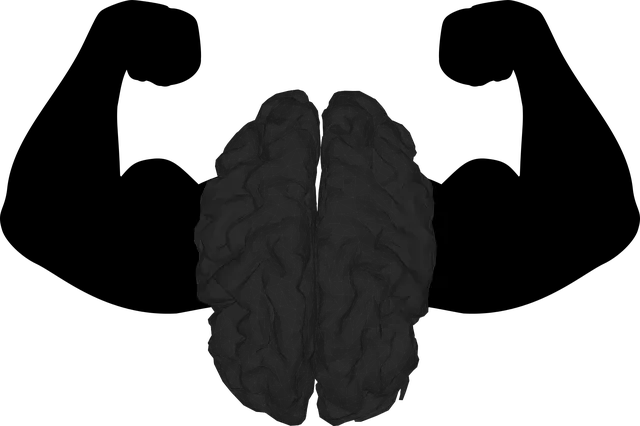Kaiser's inpatient mental health services in Lone Tree prioritize early intervention and personalized care through advanced self-assessment tools. These tools assess emotional regulation, anxiety relief, and self-care practices, enabling individuals to take control of their mental wellness. While traditional methods struggle with nuances and accessibility, Kaiser offers innovative solutions bridging clinical and everyday self-care. Culturally sensitive self-assessments tailored to diverse needs improve outcomes, foster resilience, and enhance overall mental health awareness within the community.
Mental wellness self-assessment tools play a crucial role in individual understanding and seeking support. This article explores the development, implementation, and impact of such tools, focusing on Kaiser’s Inpatient Mental Health Services in Lone Tree as a case study. We delve into the gaps and challenges of current assessment methods, highlighting the need for effective self-assessment tools. By examining real-world examples, we provide insights into creating and evaluating innovative solutions to enhance mental wellness assessments. Discover how these tools can revolutionize care accessibility.
- Understanding Mental Wellness Self-Assessment Tools
- Kaiser's Inpatient Mental Health Services in Lone Tree
- Gaps and Challenges in Current Assessment Methods
- Developing Effective Self-Assessment Tools
- Implementing and Evaluating the Impact of New Tools
Understanding Mental Wellness Self-Assessment Tools

Mental wellness self-assessment tools play a pivotal role in individuals taking charge of their emotional well-being. These tools, designed to offer insights into mental health status, are essential for early detection and intervention. They empower people to understand their Emotional Regulation, Anxiety Relief, and Self-Care Practices, enabling them to make informed decisions about their mental wellness.
One notable example is Kaiser’s inpatient mental health services in Lone Tree, which leverages self-assessment tools as part of its comprehensive care approach. These tools help patients assess their symptoms, track progress, and collaborate with healthcare professionals to develop tailored treatment plans. By utilizing such assessments, mental health facilities can ensure personalized care that addresses the unique needs of each individual, fostering better outcomes and improved quality of life.
Kaiser's Inpatient Mental Health Services in Lone Tree

Kaiser’s Inpatient Mental Health Services in Lone Tree offer a specialized and comprehensive care solution for those seeking support for their mental health. As a leading healthcare provider, Kaiser recognizes the importance of addressing the unique needs of individuals within their community, especially when it comes to mental wellness. This facility is designed to provide an environment where patients can receive intensive treatment and therapy, fostering a sense of stability and recovery.
The inpatient program incorporates various evidence-based practices and benefits from the healthcare provider’s cultural competency training, ensuring a sensitive and culturally responsive approach. By focusing on Cultural Sensitivity in Mental Healthcare Practice, the team aims to create a safe space for all patients, regardless of their background. Additionally, Kaiser Lone Tree contributes to public awareness campaigns development, further extending its reach beyond the facility, promoting mental health understanding and support throughout the community.
Gaps and Challenges in Current Assessment Methods

The current landscape of mental wellness assessment is marked by several gaps and challenges, particularly in tools that cater to comprehensive self-evaluation. While resources like Kaiser’s inpatient mental health services in Lone Tree offer critical support for severe cases, they often lack personalized, accessible, and user-friendly options for individuals seeking self-assessment outside of clinical settings. This discrepancy highlights a pressing need for innovative solutions that bridge the gap between formal treatment and everyday self-care practices.
Traditional assessment methods struggle to capture the nuances of mental wellness, especially when it comes to Self-Esteem Improvement and Emotional Regulation. Many existing tools rely heavily on clinical interviews or standardized questionnaires that may not adequately assess an individual’s unique experiences and coping mechanisms. Moreover, risk assessment for mental health professionals remains a complex issue, as current tools often oversimplify or overlook crucial factors that contribute to an individual’s overall mental health status.
Developing Effective Self-Assessment Tools

Developing effective self-assessment tools for mental wellness is a multifaceted process that requires careful consideration and expertise. These tools play a pivotal role in empowering individuals to take charge of their mental health, especially when seeking support from healthcare providers like those available at Kaiser’s inpatient mental health facility in Lone Tree. By facilitating self-reflection and introspection, these assessments enable people to identify areas of concern and strengths, fostering a more proactive approach to managing their well-being.
The design of such tools should prioritize accuracy, reliability, and cultural sensitivity. Incorporating elements like Resilience Building and Social Skills Training within the assessment can provide valuable insights into an individual’s coping mechanisms and interpersonal dynamics. Tailoring these evaluations to address diverse needs ensures that they remain inclusive and effective for a wide range of users. Effective self-assessment tools not only aid in personal growth but also serve as powerful resources for healthcare providers, guiding them in delivering more personalized and culturally competent care during their Lone Tree operations.
Implementing and Evaluating the Impact of New Tools

Implementing new mental wellness self-assessment tools is a significant step in improving individual and community mental health, particularly when considering options like what Kaiser has inpatient mental health Lone Tree offers. These tools are designed to encourage self-reflection and provide insights into one’s emotional well-being. Once introduced, their impact should be meticulously evaluated to gauge their effectiveness. This process involves measuring user engagement, the quality of data collected, and the overall improvement in mental wellness among participants.
Regular assessments during the production and post-launch stages of the Mental Wellness Podcast Series Production can offer valuable insights into what works best for different demographics. Similarly, Burnout Prevention Strategies for Healthcare Providers can benefit from these tools to identify and address early signs of distress. Promoting positive thinking is another aspect where self-assessment tools excel, helping individuals cultivate resilience and enhance their overall mental wellness.
Mental wellness self-assessment tools play a pivotal role in identifying and addressing individual needs. As demonstrated by Kaiser’s Inpatient Mental Health Services in Lone Tree, integrating these tools into healthcare systems can significantly improve patient outcomes. However, existing methods face gaps and challenges, as highlighted in the article. To move forward, developers must focus on creating effective, user-friendly, and accessible self-assessment tools that cater to diverse mental health concerns. Implementing and evaluating these new tools will be crucial to understanding their impact and ensuring they meet the evolving needs of individuals seeking mental wellness support.






